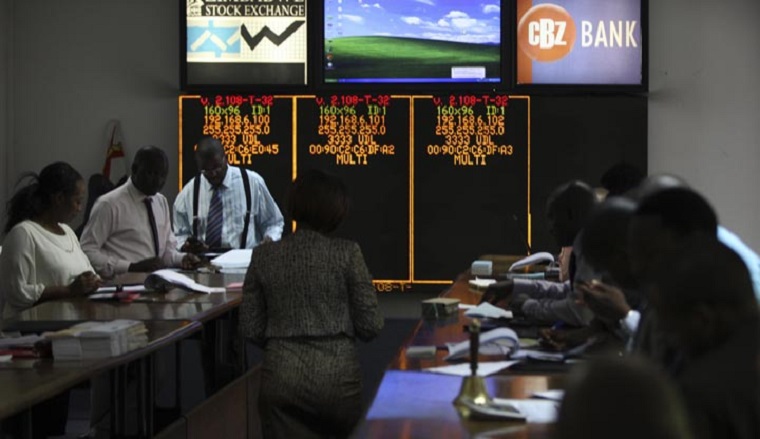The Zimbabwe Stock Exchange (ZSE) has experienced capital flight during the year to July 31, as foreign sales amounting to $60.9 million outweighed foreign purchases of $33.5 million, resulting in a net capital outflow of $27.4 million.
Participation on the local bourse by foreigners has however, been generally lower compared to last year, registering 33.8 percent of the trades in the seven months to July 31, down from the 62.36 percent achieved in the same period last year.
Total foreign purchases amounted to $33.5 million compared to $48.7 million recorded in the same period last year, while equity disposals as of July 31 equalled $60.9 million relative to $77.4 million achieved in the comparable period last year.
Foreign portfolio flows, from equity purchases by foreign investors, provide both liquidity and stability on the market which is positive for not only listed firms but the country at large, but now the market seems to be dominated by local investors, as foreigners lose appetite for local shares.
A leading research firm and stockbroker, MMC Capital, in its latest economic report this week, expressed concern over capital flight , which has become a characteristic of the local bourse.
“The difficulty in remitting sale proceeds, driven by Nostro pressures, resulted in some foreign investors opting to sell and reserve better positions in the remitting queue. The trend is worrying given that attracting foreign capital inflows has an overall positive impact on economic growth,” MMC Capital said.
MMC Capital said the current bull run on the ZSE is driven by local institutional investors who are opting to hold equities in order to hedge their investment portfolios from inflationary expectations.
“Our view is that the surge in equities has largely been driven by local institutional investors seeking real growth component (inflation hedge) that is provided by equities. Monetary developments namely; increasing RTGs balances relative to USD cash and Nostro balances, which have pushed up premiums on USD notes, continue to drive inflationary expectations,” MMC Capital added.
The research firm also said that equities are presenting attractive returns relative to other investment alternatives.
“Given the minimal investment asset classes on the local market (equities, fixed income and real estate), equities remained the better asset class, given unattractive returns in the other asset classes,” MMC Capital said.
Continued next page
(135 VIEWS)







0 Comments